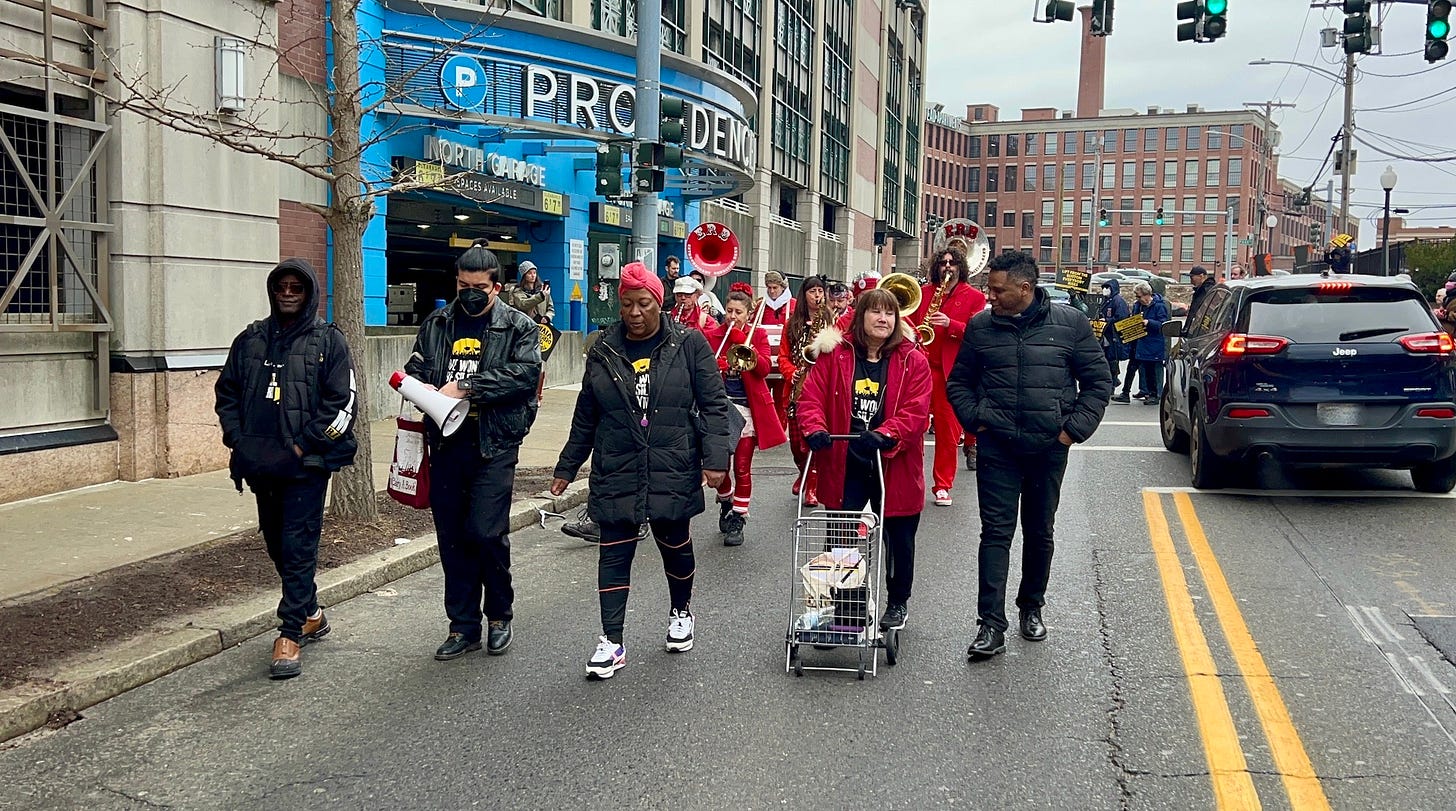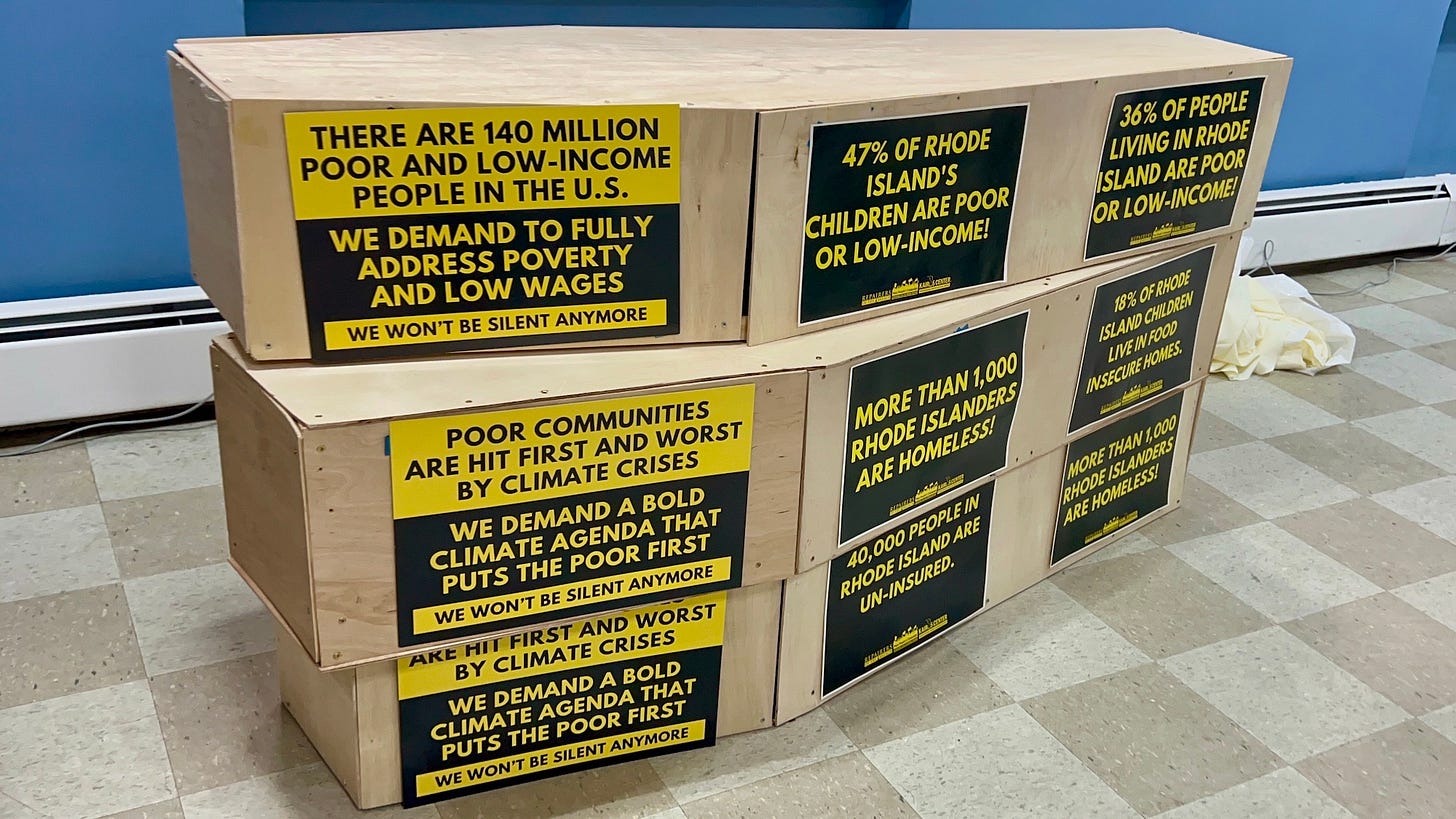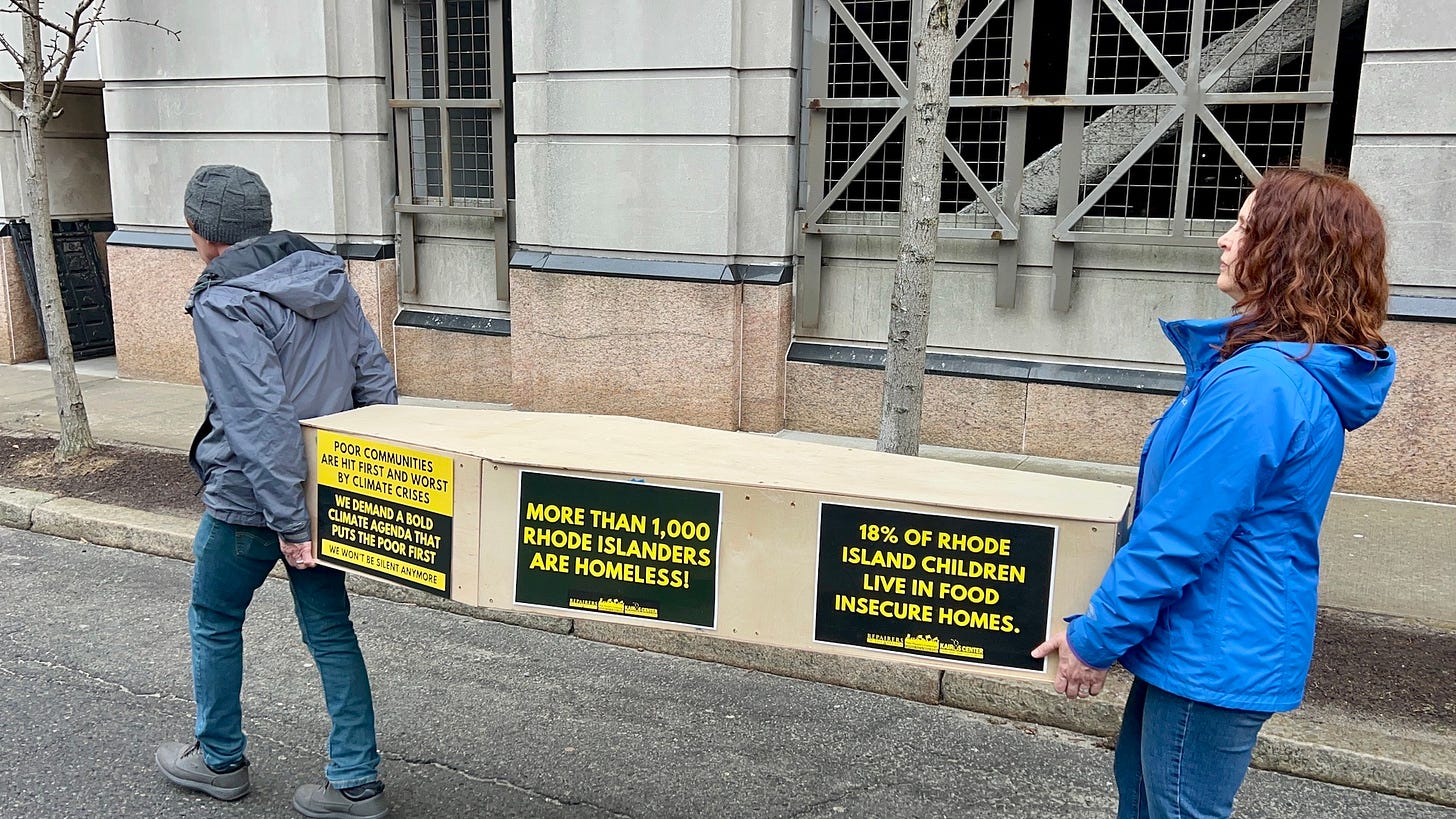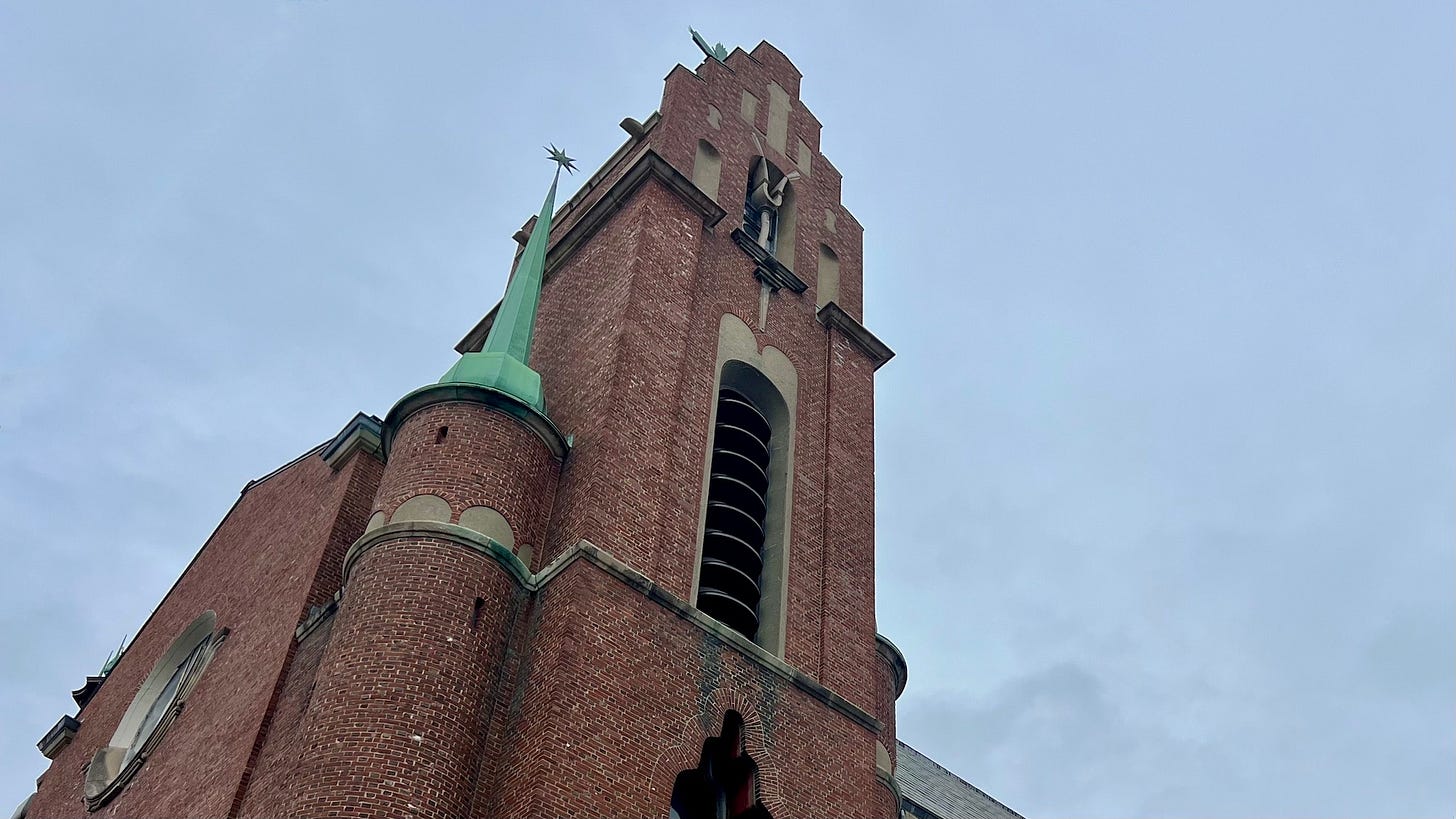RI Poor People’s Campaign demands an end to death by poverty at State House rally
Similar rallies were held across the country ahead of the November elections when organizers hope "low-wealth voters will play a crucial role in Rhode Island elections"
From a press release:
Poor and low-wage people joined the Rhode Island Poor People’s Campaign for a mass assembly at the State House in Providence to launch a 40-week effort to mobilize poor and low-wage voters in Rhode Island. They will demand legislators take immediate action to end the crisis of death by poverty in the United States.
“The Poor People’s Campaign is mobilizing today to wake up the sleeping giant of low-wage voters who have been ignored for far too long. Do not listen to those who say poor and low-wage voters are apathetic about politics or marginal to election outcomes,” said the Reverend Dr. William J. Barber II, national co-chair of the Poor People’s Campaign and co-chair of the 2024 mobilization. “Poor and low-wage voters have the power to change electoral outcomes up and down the ballot in November. We are putting politicians on notice: if you want our votes, you must legislate to end the crisis of death by poverty in America.”
On February 5, national Poor People’s Campaign leaders launched a major effort to mobilize 15 million poor and low-wage voters in more than 30 states ahead of November’s election. On Saturday, in a coordinated day of action, local leaders across participating states hosted simultaneous mass assemblies to amplify the voices of poor and low-wage voters.
There are approximately 85 million poor and low-wage eligible voters in this country who represent at least 30% of the electorate. In so-called battleground states it’s close to and over 40%. 800 people die each day as a result of being poor and low-wealth. These deaths are completely preventable and unnecessary. High percentages of poor and low-wage voters don’t vote because politicians fail to enact policies or address the issues that affect their lives.
Around 200 people gathered in Providence’s Gloria Dei Evangelical Lutheran Church and then, accompanied by the Extraordinary Rendition Band, carried three caskets to the Rhode Island State House for a brief speaking program. The rally then returned to Gloria Dei for the remainder of the speaking program due to the rain.
During Saturday’s mass assembly, a powerful fusion coalition, including impacted people, poor and low-wage voters, faith leaders, and social justice advocates, gathered to declare their votes are demands for living wages, voting rights, and other policies to combat poverty and save lives. As part of the assembly, poor and low-wage voters shared testimonies of how poverty has impacted their lives and why politicians must champion the issues that matter most to poor and low-wealth individuals.
Pastor Carl Jefferson of Life Change Providence and the tri-chair of the Rhode Island Poor People’s Campaign, said, “We’re gathered here in Providence along with 34 other states and DC all across the country for our Mass Poor People’s and Low-Wage Workers Simultaneous State House Assemblies. We will not accept poverty being the fourth leading cause of death anymore.” Pastor Jefferson went on to stress that in a country with so much wealth, poor and low-wealth voters are refusing to accept the myth of scarcity and instead are declaring that their votes are demands for living wages, voting rights, and other policies to save lives and save this democracy. At each mass assembly, poor and low-wage voters shared powerful testimony and put politicians on notice: if they want their votes in November, they must address the crisis of death by poverty
“I rally for the Poor People’s Campaign because of Dr. Martin Luther King's vision of economic justice, anti-militarism, and racial civil rights,” said the Reverend Wendy Van Orden of Woonsocket, providing the historical context of the Poor People’s Campaign. “For these issues, he was planning the Poor People's March to Washington in 1967, a year before he was assassinated… To these issues, I have dedicated my life and ministry.”
“The majority of our members are working class, low income, fixed income, or have no income at all, and we all experience poverty firsthand,” said Daisy Benitez of Pawtucket, who works at the George Wiley Center. “There was a person with multiple sclerosis who was facing termination this summer. She had voiced her need to utility providers and nothing got done until she reached out to us and we helped her, but not everyone qualifies for the programs already in place. We need stronger protections and affordable rates for utilities for the poor. Basic necessities are a human right, not a privilege.”
Dan Benitez, Daisy's brother, a student in Pawtucket’s Shea High School, mentioned how he daily experiences the interlocking injustices mentioned by the Reverend Wendy Van Orden. “This past week there was an incident related to the use of weapons at my school. We need gun control in this country, we need more counselors at school and fewer uniformed people with weapons, and we need to continue thriving in a safe learning environment. We need a revival of the people - to stand up for what is right, stand up against injustices, stand up for an end to gun violence.”
Making up 43% of the country, there are over 135 million poor and low-income people in the United States. In Rhode Island, there are over 330,000 poor and low-wealth people, one-third of the Rhode Island population. Among these are 240,000 eligible voters, 25% of the electorate.
“I'm a poor Rhode Islander,” said Terri Wright, a long-time community organizer from Providence. “I struggle every day. I have watched politicians refuse to raise the minimum wage to a living wage. I know people who struggle and have died from the weight of poverty. Hear our cries! Don’t let the supporters of systemic racism blur your vision. Poor people deserve sustainability!”
Excessive spending on the war economy is a recurring theme, affecting almost everything including the Providence school system with its deplorable state of funding, as Lindsay Paiva, a third-grade teacher in the Providence school system, mentioned.
“The connections between Rhode Island's State House and our congressional delegation are very clear,” said Jonathan Daly Labelle of No Endless War and Excessive Militarism. “By and large, they are cheerleaders for the US war machine. There is an over-reliance on the mentality of creating jobs through war machines of death and destruction rather than building housing, creating better health care systems, meaningfully addressing the climate crisis, and more support for our students and people in general.”
On Monday, March 4, advocates will reconvene at legislative offices in Providence to deliver a comprehensive package to legislators on both sides of the political aisle documenting the conditions poor people are facing in their state and the bold actions that can be taken to address these crises.
Partners of the Rhode Island Poor People’s Campaign include East Bay Citizens for Peace, Economic Progress Institute, George Wiley Center, Just Peace Rhode Island, Rhode Island Interfaith Coalition to Reduce Poverty, Mathewson Street United Methodist Church, Members of Providence Friends Meeting, No Endless War and Excessive Militarism (NEWEM), Pax Christi Rhode Island, Rhode Island Homeless Advocacy Project (RIHAP), Rhode Island Housing Justice Organizing Committee, Rhode Island State Council of Churches, RI Predatory Lending Reform Coalition, Sisters of Mercy Ecology, and Sisters of Mercy Justice Team.









